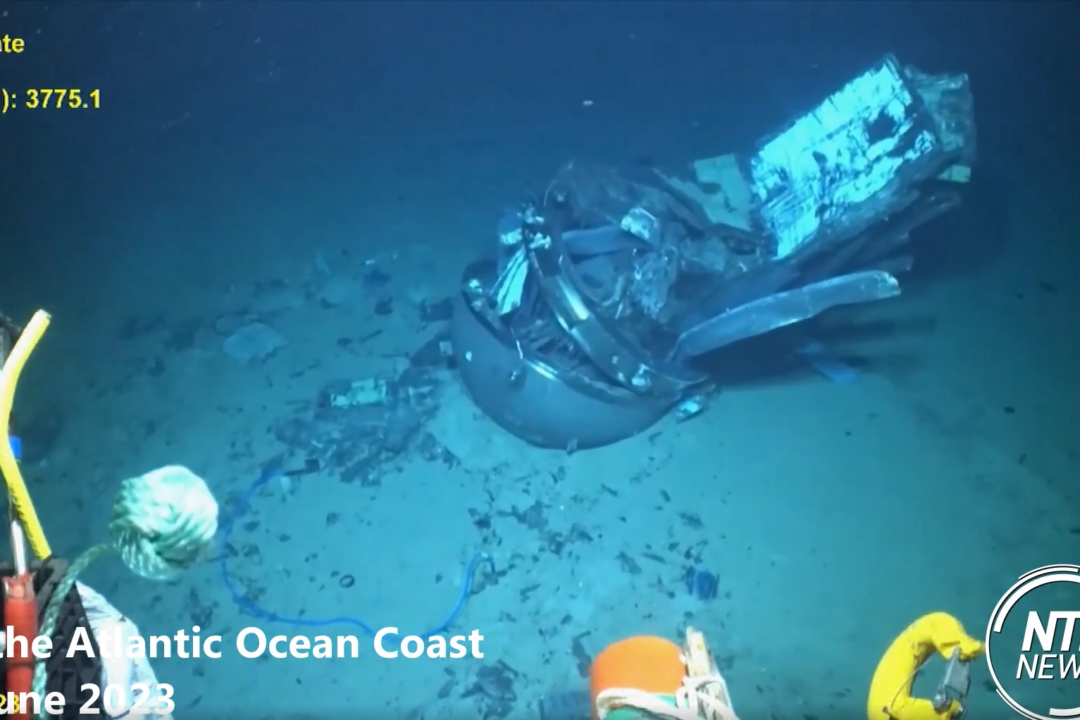Science
NTSB Confirms Hull Damage Caused Titan Submersible Implosion

The National Transportation Safety Board (NTSB) has determined that damage to the hull of the Titan submersible led to its catastrophic implosion during an expedition to the Titanic wreck in June 2023. This incident resulted in the deaths of all five individuals aboard. The findings were detailed in an official report released on October 15, 2023.
The Titan, an experimental submersible constructed in 2021 by the private company OceanGate, was on a mission to explore the iconic wreckage in the North Atlantic Ocean when its pressure hull failed on June 18, 2023. The NTSB’s investigation revealed that deficiencies in OceanGate’s engineering processes contributed significantly to the hull’s failure.
According to the NTSB report, “We determined that the probable cause of the hull failure and implosion of the submersible Titan was OceanGate’s inadequate engineering process, which failed to establish the actual strength and durability of the Titan pressure vessel.” This assertion underscores the critical need for rigorous engineering standards in the design and construction of submersibles, particularly those venturing to extreme depths.
The report outlined that the Titan was designed to reach depths of approximately 4,000 meters (13,123 feet) to explore the Titanic wreck, located about 3,800 meters (12,467 feet) below the ocean surface. The submersible was equipped with advanced technology, yet it failed to withstand the intense pressure of the deep sea environment.
The five victims included the company’s CEO, Stockton Rush, who piloted the Titan, along with renowned explorer Hamish Harding, French Titanic expert Paul-Henri Nargeolet, and two other mission specialists. Their families have expressed profound grief over the loss, and the tragedy has sparked renewed discussions about safety regulations for deep-sea exploration.
The NTSB’s findings are poised to prompt significant scrutiny of safety protocols in the burgeoning industry of commercial deep-sea exploration. OceanGate has not publicly commented on the report at the time of this publication, but the implications of the NTSB’s conclusions are likely to influence future operations in this high-risk field.
As the investigation closes, the NTSB emphasizes the importance of stringent adherence to engineering standards to prevent similar tragedies. The Titan incident serves as a stark reminder of the risks associated with deep-sea exploration and the critical need for comprehensive safety measures to protect both crew members and the integrity of the vessels involved.
The report’s conclusions are expected to draw attention from regulatory bodies worldwide, potentially leading to changes in how submersible expeditions are conducted and monitored in the future.
-

 Sports1 week ago
Sports1 week agoSteve Kerr Supports Jonathan Kuminga After Ejection in Preseason Game
-

 Politics1 week ago
Politics1 week agoDallin H. Oaks Assumes Leadership of Latter-day Saints Church
-

 Business1 week ago
Business1 week agoTyler Technologies Set to Reveal Q3 2025 Earnings on October 22
-

 Lifestyle1 week ago
Lifestyle1 week agoDua Lipa Celebrates Passing GCSE Spanish During World Tour
-

 Entertainment1 week ago
Entertainment1 week agoZoe Saldana Advocates for James Cameron’s Avatar Documentary
-

 World1 week ago
World1 week agoD’Angelo, Iconic R&B Singer, Dies at 51 After Cancer Battle
-

 Lifestyle1 week ago
Lifestyle1 week agoKelsea Ballerini Launches ‘Burn the Baggage’ Candle with Ranger Station
-

 Business1 week ago
Business1 week agoMega Millions Jackpot Reaches $600 Million Ahead of Drawings
-

 Science1 week ago
Science1 week agoChicago’s Viral ‘Rat Hole’ Likely Created by Squirrel, Study Reveals
-

 Health1 week ago
Health1 week agoRichard Feldman Urges Ban on Menthol in Cigarettes and Vapes
-

 Health1 week ago
Health1 week agoCommunity Unites for Seventh Annual Mental Health Awareness Walk
-

 Business1 week ago
Business1 week agoMLB Qualifying Offer Jumps to $22.02 Million for 2024









